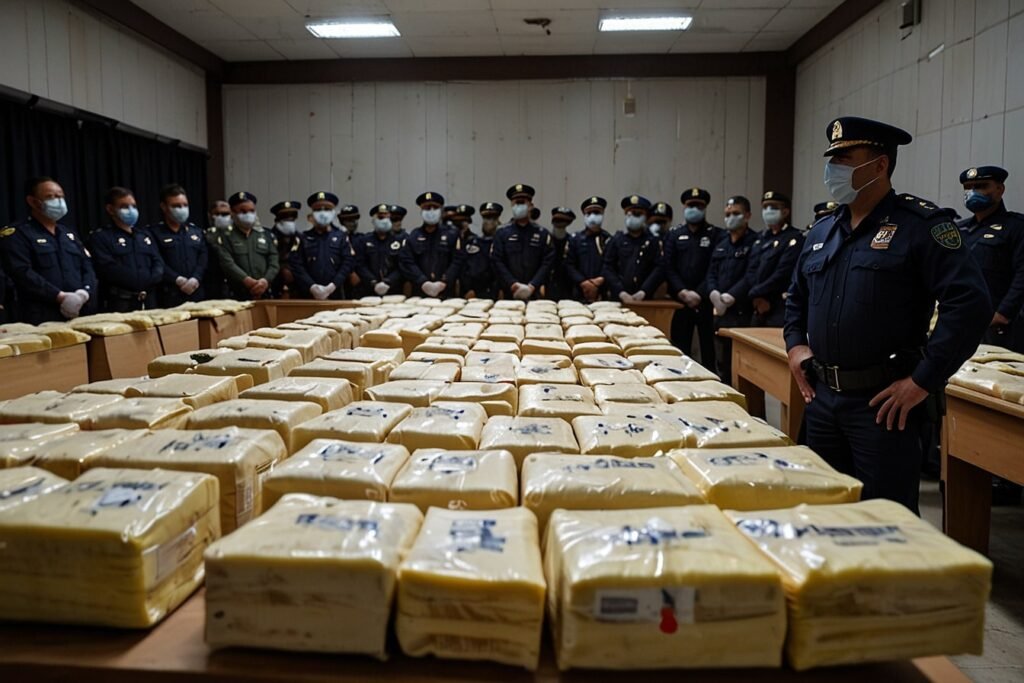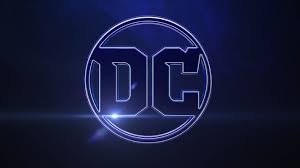
July 5, 2025 shipments of cocaine meet a hot reception by Ecuadorian authorities, leading to a successful operation in the anti-drug trade arena after apprehending some three tons of cocaine in the port city of Guayaquil. This operation, conducted by the National Police in Ecuador, targeted a consignment hidden in a cargo of bananas bound for Europe. This interdiction highlights the ongoing struggle that countries are fighting in the war on drugs, especially because crime groups have found a way to enlist commercial shipping channels to traffic drugs through legitimate trade channels.
The cocaine worth roughly 120 million dollars in the international market was found in a typical inspection in one of the busy terminals in Guayaquil. The traffickers usually used this strategy of packing the drugs in bundles so highly wrapped that they cannot be detected easily, this time they packed the drugs in banana containers. Policemen were obeying the intelligence obtained during months of surveillance and the investigations show the necessity of the consistent work in the struggle against professional criminal groups. The arrest was the outcome of the operation, and four people were seized, two of whom were assumed to be members of an Albanian crime syndicate that was known to be organizing the shipment.
The Albanian Linkage
The forensics have attributed cocaine confiscated to the Albanian Mafia, which is a highly ranked criminal group that is increasingly dominant in the international drugs market. The group also enjoys a reputation for using advanced procedures in its operations due to its networks in South America, Europe, and other parts of the world where they traffic large amounts of hard drugs. The seizure is the most recent of a spate of busts against Albanian-linked drug activities that indicate the group is emerging in the drug-trafficking communities of Latin America.
Due to its geographical position straddling Colombia and Peru, the global cocaine epicenters, Ecuador is one of the greatest transit centers in the activities of the drug cartels. Its Pacific coast ports, such as Guayaquil, are centres of exit points for cocaine shipments to Europe and North America. In this connection, the role of Albanian organized crime in this operation demonstrates the globalized drug business nature in which international networks of crime actors cooperate in order to take advantage of weak points in cross-border transport and trade systems.
Rising Drug Violence in Ecuador
The arrest was made when Ecuador was struggling to deal with a wave of drug-related violence. Ecuador was once a relatively quiet country but the homicides have soared as well as gang activity over recent years, largely as the drug trade has taken root here. Guayaquil, Ecuador, which is the economic center of the country, has suffered worse, and competing gangs are in a fight over the control of lucrative trafficking routes. The stark contrast is that in 2024 alone the city recorded more than 2,000 homicides, which was contrary to the traditionally low crime rates endured there.
The foreign criminal gangs, like the Albanian Mafia, have entered and made the situation more difficult. Such organizations tend to collaborate with gangs on the ground, offering them finances and logistics planning to gain entry into routes of smuggling. This alliance has provided a violent turf war, where neighborhoods are seen to be on the firing line. The Ecuadorian government has acted by sending out the military to man high-risk areas and also beefing up the police workforce in ports, but it is still way too big to tackle with the local resources.
International Constructions of the Capture
The Guayaquil seizure cannot be isolated from this situation, but on the contrary, constitutes an element of a larger global fight against drug trafficking. Europe, as a major destination point of South American cocaine, has experienced drastic growth in cocaine usage in the last ten years. Belgium, the Netherlands, and Spain ports have also emerged as major entry points, and the traffickers have taken advantage that there are a lot of containers to smuggle drugs in the ports. The active participation of Albanian crime syndicates in the case indicates the extent to which they are involved, in the European drug markets, in stiff competition with traditional Latin American cartels and local gangs.
Law enforcement authorities worldwide have increased their activities in interfering with these networks, such as Interpol and Europol. The European and South American governments have been working in collaboration on this problem, leading to a number of high-profile seizures in recent years; nonetheless, the sheer amount of cocaine making it into the market remains problematic. The Guayaquil bust makes us of the necessity of higher cooperation between various world countries and exchange of intelligence in real time and increase control of shipping networks.
The Ecuadorian Reply and Problems to Come
Ecuadorian President Daniel Noboa appreciated the move by the National Police in an effort to fight organized crime with the government, reacting to the seizure. Under Noboa, who took office a year ago, the focus has been on security and a period of emergency has been declared in some provinces and he has also given the military to act against the drug gangs. The critics, however, beseech that these actions only respond to the superficial aspects of a wider issue, such as corruption in the law enforcers and poor investment in the socialization of the young,g so that they may not join gangs.
It is also high time to question the efficiency of existing anti-drug policies by the seizure. Although large busts may disorient supply chains, colossal efforts are likely to collapse at the expense of the trafficking networks underlying the process. Analysts indicate that the real cause of involvement of Ecuador as a ferry point of drug transit will be tackled by attending to the root causes of the problem, i.e., poverty, low economic activity, and poor governance. Furthermore, there is a need to intensify port security and the use of modern scanning devices so as to identify covert cargo more easily.
An Appeal to the World
The Guayaquil cocaine smuggling incident may serve as a bright clarification of the tricky and interdependent issue of the worldwide drug trade. Due to their growth and their evolution, criminal organizations are becoming more sophisticated, and thus governments have to react to it with no less intricate strategies. This comprises, among others, the enforcement part and the anti-social economic aspect of the drug trade. In order to develop, the future course of Ecuador must be shaped toward a balance between short-term security and investment in education, employment, and institutional fixing.
The struggle against drug trafficking is an aspect that belongs to the international community, and on the same note, there is a need to collaborate to combat the drug trade across nations by breaking the drug network, which makes money out of this trade. It is a good move in the right direction, but it is just a given battle with a bigger threat.

